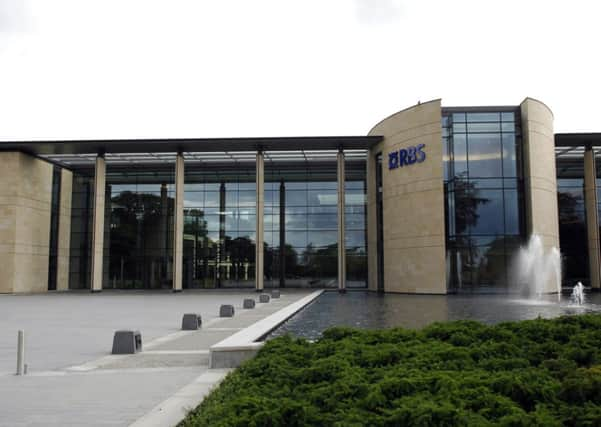Martin Flanagan: Latest RBS gaffe | Brave Argos


The error is egregious. The taxpayer-backed EFG is for the lender, not the business borrower. Introduced in 2009, at a time of recession, the EFG was meant to stimulate lending to small businesses which would otherwise find it difficult to get credit by guaranteeing the banks 75 per cent of the loan if a company could not pay its debt.
CONNECT WITH THE SCOTSMAN
• Subscribe to our daily newsletter (requires registration) and get the latest news, sport and business headlines delivered to your inbox every morning
Advertisement
Hide AdAdvertisement
Hide AdIt was a safety net for banks, particularly taxpayer-backed ones like Royal Bank of Scotland, with small businesses only benefiting from the availability of the finance without being absolved from any of its repayment.
RBS has loaned more than £900 million to some 9,000 small firms since the EFG was launched. After a review of a sample of its relevant files prompted by complaints and the involvement of the British Business Bank, the government body overseeing the scheme, RBS says it has identified cases where this crucial difference about which party was largely off the hook in the event of failure was not explained to small firms.
In some cases customers only discovered when they defaulted on loans that they were liable for the whole amount, not just a quarter of it. Such crassly poor communication on such a basic issue does not inspire confidence, but it is banking Groundhog day from mortgages to payment protection insurance (PPI).
RBS is now to examine more widely how it operated the scheme, and says that taxpayer money wrongly claimed as a result of the mis-selling would be returned.
SUBSCRIBE TO THE SCOTSMAN’S BUSINESS BRIEFING
• Get the latest business headlines from a variety of news sources emailed to your inbox each morning
It is reported that the issue contributed to the departure of RBS deputy chief executive Chris Sullivan last month, and that other managerical roles might be at risk following an “accountability review”. As the banking industry tends to cock-up in a herd, it is highly likely similar mis-selling of the product happened elsewhere on the high street.
The sadness is there is nothing intrinsically wrong with the idea of EFG. Far from it, EFG was and is an imaginative government initiative to a problem of restricted business credit in the wake of the financial crash.
The scheme should be persevered with. But, whether, as seems the case, that RBS staff involved were either inadequately clued-up on the absolute linchpin of the lending agreements, or were sloppy in the way they conveyed that crucial information to customers, it is yet another reputational bump in the road for the bank.
Advertisement
Hide AdAdvertisement
Hide AdThis should never have been a case of caveat emptor for small businesses at RBS and its NatWest subsidiary. Customers should not have to worry if basic banking competence is present.
The alternative would be the risible position of banks effectively saying to customers: “You should have been more sceptical of what we were apparently offering. You know what we’re like”.
Argos resists urge to plug into the zeitgeist
Argos took a brave decision not to follow the aggressive discounting on Black Friday in order to preserve profit margins over the festive period. The result, however, while helping profit margins in the medium-term at parent Home Retail Group, was to see same-store sales edge up just 0.1 per cent in a vital time of the year.